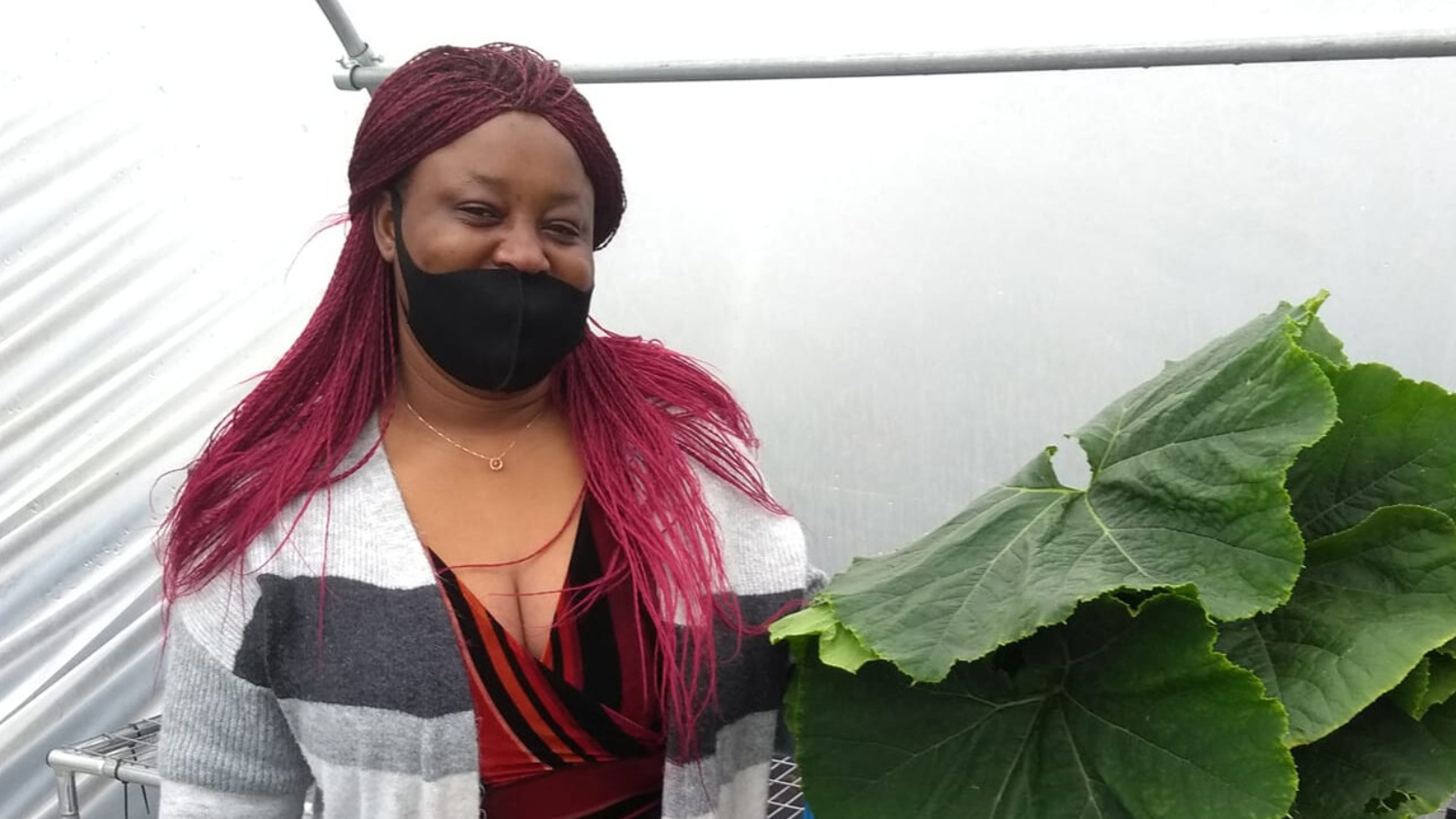“Tunnel growing is a perfect way to expand the growing season, which extends our engagement for most of the year rather than half of it. The tunnels provide a fantastic resource for learning and extra dry space for youth clubs, school workshops and broader community engagement through food; we wouldn’t be without them. We can grow so much more than just kale and tatties, under plastic we are growing exciting things to eat right here in North East Glasgow.”
Blackhill Community Garden in Provanmill, Glasgow is located on church land and is a core component of St Paul Youth Forum’s work with young people and the local community. The garden brings people together by growing, cooking and eating good food. This 0.5-acre site lies adjacent to the church and centre. It comprises outdoor raised beds, a woodfired pizza often, a seating area, a chicken run, bee hives and three 14x 30 foot tunnels providing essential infrastructure for the group’s work. Joe Lowit- Project Coordinator, shared the Blackhill’s Growing tunnel tales…“We’ve had the tunnels since 2017, the garden idea originally grew out of our young people wanting to make some money to sell produce for youth trips, and it’s grown ever since then. We wanted to try growing food and having a dry working space as the weather here is often so poor.”
The garden is open year-round for youth work, school visits, and community volunteers. Sharing and cooking food is a regular activity either through workshops or community meals. Any surplus fruit and veg is given away at either the veg barra stall, which has Blackhill’s Grown produce available for free (with option to donate) alongside wholesale cost price fruit and veg staples, or at the community larder, which provides free weekly emergency food.
Local support for the garden is strong, and the garden regularly hosts pick-your-own days in the summer months for the local community to come in and pick their own fresh, locally-grown produce. Vandalism has never been a problem, but the tunnel plastic has occasionally suffered accidental damage through use that has to be patched up.
Unsurprisingly, soft fruit is always popular with local families, but large pumpkin leaves have also been warmly welcomed- an essential ingredient in West African and Bangladeshi cuisine not otherwise readily available in this area of Glasgow. “New Scots really love the tunnel growing as we are growing food stuffs they are perhaps more used to. We had no idea pumpkin leaves were such a delicacy or could be so delicious over the years, we’ve grown lots of exotic and exciting produce in our wee corner of Glasgow, from figs, cucamelons, and tomatillos to Japanese pumpkins, sweetcorn and aubergines. However, this year is the first time we’ve managed to grow our own melon and it was delicious!
Much like any community space, the best ideas are often the craziest, and the group decided to try growing seedless white grapes, anticipating a limited crop, but now, in the late summer months, they harvest kilos! With a red wine grape, they’ve also made wine; combining this with their educational partnership with ‘Scotland the Bread’, they have grown their very own communion bread and wine to be shared with the church.
The gardens focus is always on what the community wants, and soft fruit is always popular. Polytunnels prolong the soft fruit season, and through growing different varieties outside and under plastic, they can harvest homegrown strawberries from May to September. From a community garden perspective, it’s a game changer. Similarly, tomatoes can be extended over a couple of months. However, Joe is quick to point out that experimentation with different plant varieties is more about bringing excitement to the garden than producing commercial quantities of fresh, local food. That’s the next venture! Blackhill’s Growing has recently started work on developing a market garden on a new larger site nearby, where the plan is to use polytunnels to grow fruit and veg on a commercial scale for the local community.
Recommnedations to others;
Our water comes from the mains, and we run a drip line to the plants, which is much more efficient for water usage and cuts down on the weeding.
Learn by doing; you learn from your mistakes!


